Why Do I Want a Potato Right Now?
7 Surprising Reasons Behind Why We Crave Potatoes
Given the variety of ways potatoes are consumed, there’s no question almost all potato lovers crave it. If You Ever Wondered, “Why am I Craving Potatoes?” Well, look no further!
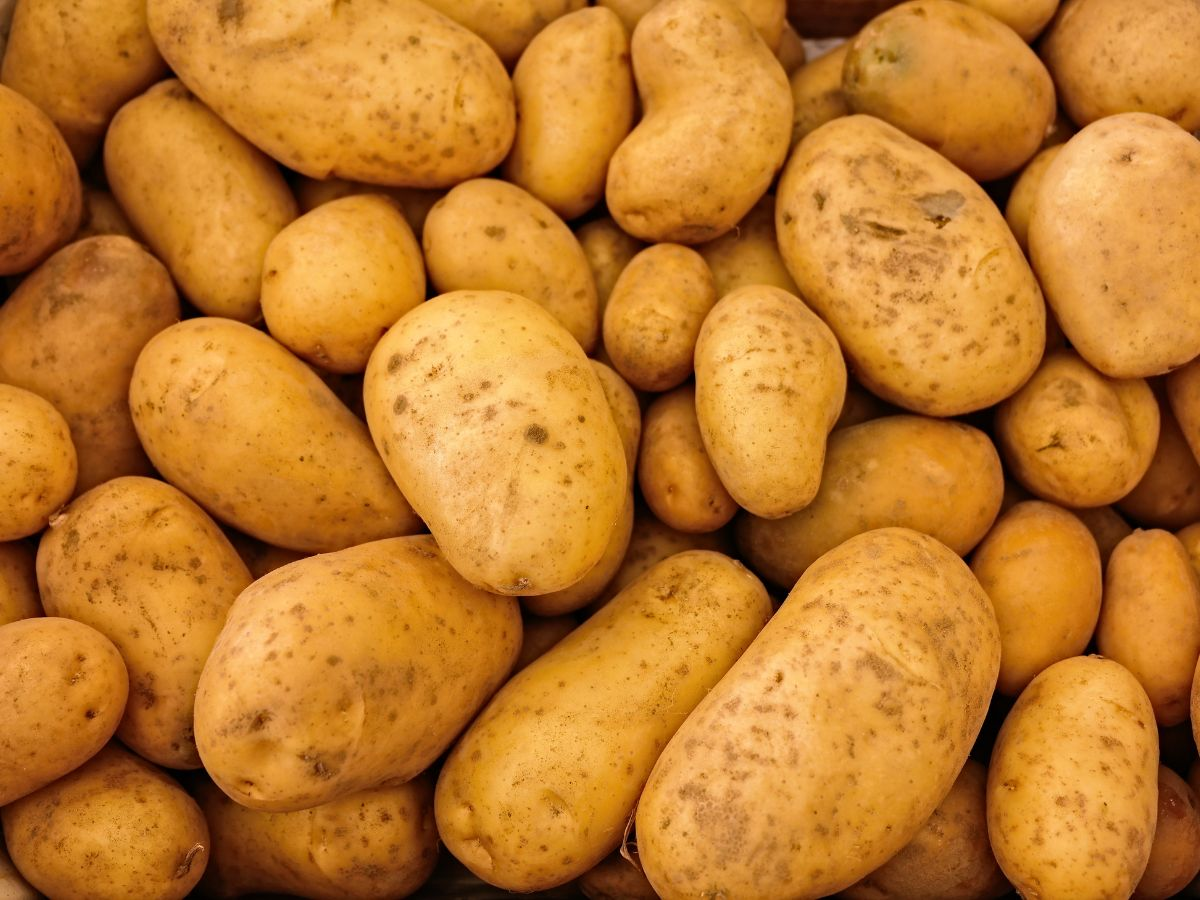
I Love Potatoes So Much: Is This Weird?
Craving potatoes is not weird at all! Cravings for specific foods, including potatoes, are entirely normal and can be influenced by various factors, as mentioned in the article.
People have different tastes and preferences, and there’s nothing unusual about having a strong desire for potatoes or other food. Food Cravings are real and linger around every corner.
It’s important to listen to your body’s cues and enjoy the foods you love in moderation as part of a balanced diet.
So, if you find yourself craving potatoes, embrace it and savor the deliciousness of this versatile and beloved food.
Table of Contents
Potato Passion: 7 Surprising Reasons Behind Your Potato Cravings!
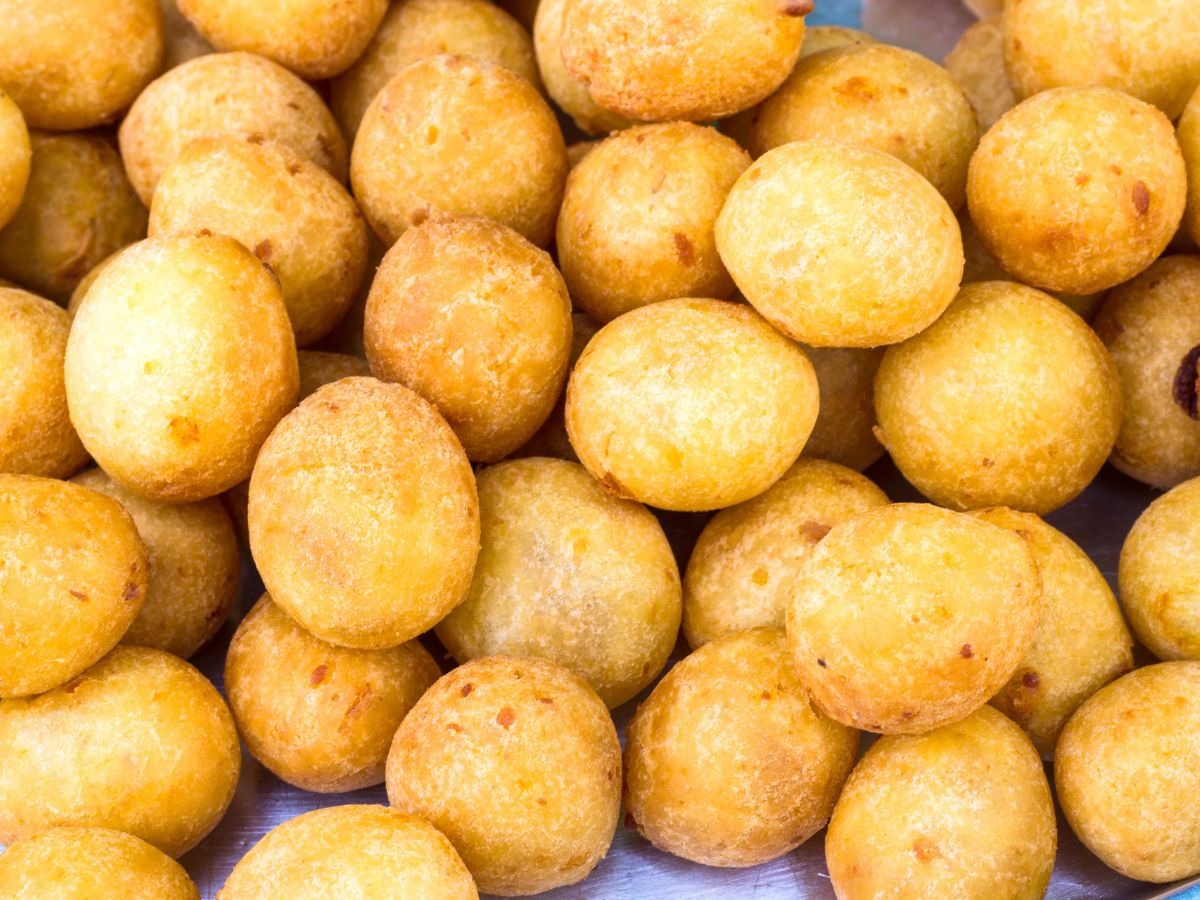
Do you ever ponder the age-old question, “Why am I craving potatoes again?” You’re not alone!
For countless reasons, potatoes hold a special place in our hearts (and stomachs). In this delightful journey through the world of spuds, we’re about to uncover the secrets behind your potato cravings.
Why am I Craving Potatoes?
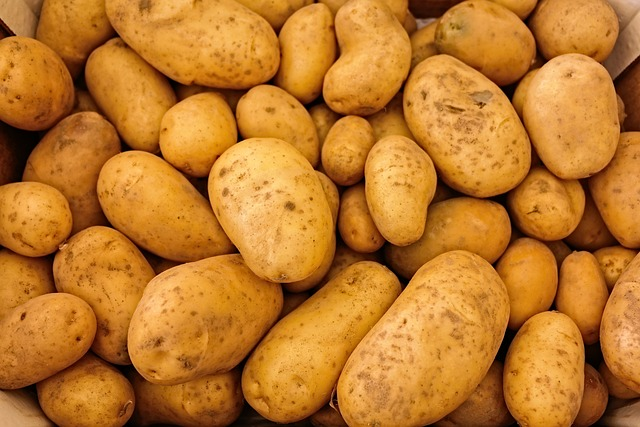
Here are 7 Top Reasons for your Potato Cravings:
1. Nutrient Deficiency: The Potato Powerhouse
Have you ever wondered why your taste buds are tantalized by the thought of a loaded baked potato?
It might be your body screaming, “Feed me nutrients!” Potatoes are brimming with goodness, including carbohydrates, fiber, vitamin C, potassium, and essential B vitamins.
Your body knows what it’s doing when it sends you on a quest for these nutrient-packed tubers.
2. Comfort Food: Embracing the Warm Hug of Potatoes
We’ve all been there — a long, exhausting day, you’re sliding your steak out of the pan, and all you want is a heaping plate of mashed potatoes or crispy fries.
Your inner emotional eater calls out, “Why am I craving potatoes when I’m stressed?” Turns out, potatoes are the ultimate comfort food.
They have the magical ability to soothe our souls and ease our worries. The next time you find yourself seeking solace in spuds, embrace it!
3. Blood Sugar Regulation: Balancing Act
“Why am I craving potatoes when my blood sugar’s acting up?” Well, potatoes have a secret weapon: their moderate glycemic index.
When your blood sugar is on a rollercoaster, potatoes can rescue you, helping you regain control and feel more balanced. They’re like the unsung heroes of the carb world, swooping in to save the day.
4. Satiety and Fullness: The Potato’s Filling Charisma
When hunger strikes with a vengeance, why does your inner monologue ask, “Why am I craving potatoes so much?”
These versatile tubers have the incredible power to make you feel full and satisfied. Loaded with fiber, they’re like a cozy blanket for your stomach, keeping hunger pangs at bay.
5. Habitual Consumption: Potato, My Old Friend
You might be pondering, “Why am I craving potatoes when I eat them all the time?” It’s simple: your taste buds remember!
If you love potatoes that are a regular on your plate, your body gets used to their deliciousness. It’s like a potato party in your mouth, and who wouldn’t want an invitation to that?
6. Taste and Texture: The Potato Palate Pleaser
Picture this: the crispy, golden perfection of french fries or the creamy decadence of mashed potatoes. Your taste buds are saying, “Why am I craving potatoes?
Because they’re downright delicious!” It’s not just the taste; it’s the satisfying texture people crave, too. Potatoes are the ultimate flavor and feel-good combo.
7. Cultural or Social Influence: A Potato Tale
Last but not least, ever wondered why you’re always craving mashed potatoes or potatoes even when you’re not at home?
It’s likely because of cultural or social influences. Your brain’s potato radar is always on if you grew up in a potato-loving culture or frequently indulged in potato-centric social gatherings.
Conclusion:

So, there you have it, folks — seven delightful reasons behind your potato cravings. The next time you ask yourself, “Why am I craving potatoes?” you’ll know it’s not just a whim; it’s a complex interplay of nutrients, emotions, and memories.
Embrace your potato passion, and remember, potatoes can be a part of a balanced diet when prepared sensibly. Whether you’re whipping up a potato feast or indulging in some crispy fries, enjoy the delicious journey through the wonderful world of spuds!
FAQ and Additional Facts:
Are There Benefits to Craving Potatoes?
Yes, there can be benefits when you suddenly crave potatoes, as long as your consumption is part of a balanced diet. Here are some potential benefits of unprocessed potatoes:
1. Nutrient Intake: Craving potatoes may lead you to consume a food rich in essential nutrients like carbohydrates, dietary fiber, vitamin C, potassium, and certain B vitamins. Eating potatoes can help you meet your nutritional needs.
2. Satiety: Potatoes are filling due to their high fiber content. If you’re craving potatoes and consume them, you’re more likely to feel full and satisfied, which can help prevent overeating of less healthy foods.
3. Blood Sugar Control: The moderate glycemic index of potatoes means they can be a good choice for stabilizing low blood sugar levels. This can be particularly beneficial for individuals with diabetes or those looking to manage their blood sugar.
4. Comfort and Mental Health: Potatoes eat potatoes are often considered comfort food. If you’re feeling stressed or down, indulging in your potato craving might provide a psychological boost and improve your mood temporarily.
5. Versatile Cooking: Potatoes are incredibly versatile in the kitchen. Whether you boil, bake, mash, or fry them, there are numerous ways to prepare potatoes that satisfy your cravings while allowing you to experiment with flavors and cooking techniques.
However, it’s crucial to consume potatoes in a balanced and mindful manner. Overconsumption of potatoes, especially when prepared with excessive fats, such as deep-frying for french fries or loading up on butter and cream for mashed potatoes, can lead to health issues like weight gain and elevated cholesterol levels.
Therefore, while there are many health benefits due to craving potatoes, it’s important to enjoy them as part of a varied diet and to be mindful of portion sizes and preparation methods to maximize their health benefits further.
What Else Can I Eat to Help A Potato Craving? What If There Are No Potatoes Around?
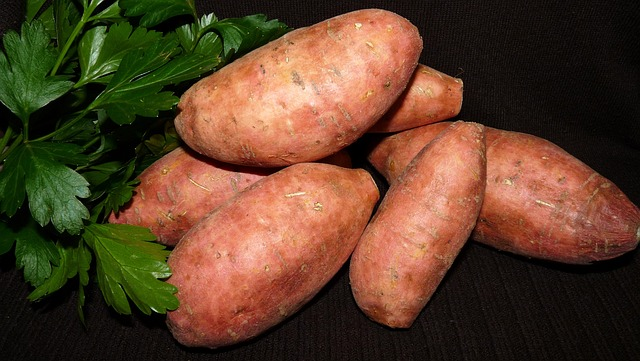
If you’re craving potatoes but don’t have any on hand or want to diversify your diet, there are several alternatives you can consider. These foods can provide similar textures, flavors, or nutrients, depending on your specific potato craving:
Sweet Potatoes: Sweet potatoes offer a similar starchy, comforting quality as regular potatoes. They are rich in vitamins, fiber, and antioxidants. You can prepare them in various ways, like baking, roasting, or mashing.
Stuffed Sweet PotatoesCauliflower: Cauliflower can be an excellent substitute for mashed potatoes when you’re looking for a lower-carb option. You can make cauliflower mash or even cauliflower tots for a crispy alternative.
Butternut Squash: Roasted or mashed butternut squash can mimic potatoes’ sweetness and creamy texture. It’s a nutrient-dense option high in vitamins A and C.
Butternut Squash SoupTurnips: Turnips have a slightly peppery flavor and can be roasted, mashed, or used in stews to replace potatoes while adding a unique taste to your dishes.
Rice: If you’re craving the texture of potatoes, opt for rice as a side dish. It can provide a similar carbohydrate base and pairs well with various toppings and seasonings.
Legumes: Beans and lentils can be a nutritious and filling substitute for potatoes. They are high in protein and fiber, making them an excellent choice for satiety.
Quinoa: Quinoa is a versatile grain that can serve as a base for various dishes, similar to potatoes. It’s rich in protein, fiber, and essential nutrients.
Pasta: If you’re craving the comfort of potato-based dishes like potato gnocchi, opt for pasta dishes. You can choose whole-grain or vegetable-based pasta for added nutrients.
Zucchini or Eggplant: These vegetables can be sliced and prepared in various ways to mimic the texture of potato-based dishes, like fries or chips.
Plantains: When craving the crispiness of potato chips or hash browns, consider plantain chips a healthier alternative. They are slightly sweet and provide a satisfying crunch.
Remember that while these alternatives can help satisfy your cravings, it’s essential to maintain a balanced diet and practice portion control.
You can also experiment with seasoning and cooking techniques to match the flavors you love about potatoes. Whether you’re trying to diversify your meals or simply have no potatoes on hand, these options can keep your taste buds happy and your nutrition in check.
Are Boiled and Mashed Potatoes Good for Mental Health?

Like many other foods, processed potatoes like french fries potato chips and tater tots can support overall mental health when consumed as part of a balanced diet. Here’s how potatoes can contribute to mental well-being:
1. Carbohydrates: Potatoes are a good source of complex carbohydrates, essential for brain function. Complex Carbs are the brain’s primary energy source, and a balanced intake of complex carbohydrates helps maintain mental alertness and cognitive function.
2. Fiber: Potatoes contain dietary fiber, which can help stabilize blood sugar levels. This is important because fluctuating blood sugar levels can affect mood and your energy levels. Stable or low blood sugar levels can contribute to better mood stability.
3. Vitamins and Minerals: Potatoes provide important vitamins and minerals, including vitamin C and potassium. Vitamin C is an antioxidant that supports brain health and may help reduce the risk of cognitive decline. Potassium is crucial for nervous system function mental clarity, and focus.
4. Comfort Food: Have an Emotional Craving? As a comfort food, potatoes can positively impact mental health. Comfort foods are a happy chemical often associated with warmth and emotional well-being. When consumed in moderation, they can provide psychological comfort during stress or sadness.
5. Versatility: Potatoes are incredibly versatile and can be prepared with great food in various ways, allowing for a wide range of flavors and textures. This versatility makes meals enjoyable and satisfying, contributing to overall well-being.
However, it’s essential to consume potatoes in a balanced and mindful way. While they can be part of a healthy diet, overconsumption or consuming them in unhealthy forms (e.g., deep-fried potato dishes) can lead to weight gain and other health issues, negatively impacting mental health.
Ultimately, the relationship between food and mental health is complex; no single food can guarantee good mental health. A balanced diet that includes a variety of nutrient-rich healthy food and other lifestyle factors like regular exercise, adequate sleep, and stress management plays a significant role in supporting mental well-being. And Always Drink Water
How Do I Stop Craving Potatoes?

If you find yourself frequently craving potatoes and want to reduce or manage those cravings, here are some strategies you can try:
1. Understand the Triggers: Pay attention to when and why you typically crave potatoes. Are specific situations, emotions, or times of day triggering these cravings? Understanding the triggers can help you address the food cravings and root causes.
2. Balance Your Diet: Frequent cravings can sometimes be a sign that your body of nutrient deficiencies. Eating diverse foods can help fulfill your nutritional needs and reduce cravings.
3. Choose Healthier Alternatives: When you have a potato craving, choose healthier preparations, such as baked or boiled potatoes, rather than fried options like french fries.
4. Portion Control: If you’re trying to reduce potato consumption, practice portion control. Limit the amount of eaten. Fill the rest of your plate with vegetables, lean proteins, and whole grains.
5. Substitute with Lower-Carb Options: Consider replacing potato-based meals with lower-carb alternatives like cauliflower rice, spiralized vegetables, or mashed cauliflower. These can provide a similar texture and taste processed potatoes while reducing carb intake.
6. Stay Hydrated: Sometimes, thirst can be mistaken for hunger or cravings. Ensure you’re drinking water throughout the day to stay properly hydrated.
7. Manage Stress and Emotions: Cravings can be triggered by stress, boredom, or emotional factors. Practice stress management techniques such as mindfulness, meditation, or deep breathing to help reduce emotional eating.
8. Plan Balanced Meals: Plan your meals ahead of time to ensure they are well-balanced and satisfying. Include a mix of carbohydrates, proteins, fats, and fiber to help keep cravings in check.
9. Snack Smart: If you often crave potatoes or crave salt as a snack, have healthier snack options readily available. Opt for snacks like nuts, yogurt, or fresh fruit to curb your cravings between meals.
10. Seek Support: If you find it challenging to control your cravings independently, consider seeking support from a registered dietitian or a healthcare professional.
The goal is to balance enjoying the foods you love and maintaining a healthy, well-rounded diet.
Be patient with yourself as you work on managing your potato cravings, and don’t be too hard on yourself if you occasionally give in to them.
Craving Potatoes In Pregnancy?

Craving potatoes during pregnancy is not unusual, and it’s actually quite common for pregnant individuals to experience cravings for various foods, including potatoes.
These cravings can be influenced by physical, nutritional value hormonal, and emotional factors. Here’s why pregnant individuals might crave potatoes:
1. Hormonal Changes: Pregnancy hormones, such as estrogen and progesterone, can influence taste preferences and cravings. These hormonal shifts can make certain foods, like potatoes, more appealing during pregnancy.
2. Nutritional Needs: During pregnancy, the body’s nutritional requirements for certain nutrients change to support the growing fetus and immune system. Potatoes are a source of carbohydrates, enough carbs to provide more energy, and they also contain essential nutrients like fiber, vitamin C, and enough potassium. Craving potatoes may be a way for the body to signal a need for these nutrients.
3. Morning Sickness: Many pregnant individuals experience morning sickness, which can lead to nausea and vomiting. Foods like potatoes, and brown rice, especially when bland and easy on the digestive system (e.g., mashed or boiled), may be more tolerable and less likely to trigger nausea.
4. Comfort Food: Pregnancy can bring about emotional and psychological changes, and cravings for comfort foods like potatoes are not uncommon. The familiarity and comfort associated with certain foods can provide a sense of reassurance during a time of change.
5. Texture and Taste: Potatoes have a versatile texture and mild flavor that can appeal to a wide range of palates. Some pregnant individuals may crave the creamy texture of mashed potatoes or the salty crunch of french fries.
It’s important to note that pregnancy cravings are generally considered normal and are not a cause for concern. However, it’s essential to satisfy these cravings in a balanced way. Here are some tips for managing potato cravings during pregnancy:
1. Moderation: Enjoy potatoes in moderation as part of a well-balanced diet. Be mindful of portion sizes and preparation methods for consuming potatoes to ensure a healthy intake.
2. Variety: While satisfying your potato cravings, continue consuming various foods to meet your nutritional needs. Include fruits, vegetables, lean proteins, and whole grains.
3. Healthy Preparation: Choose healthier methods of preparing potatoes, such as baking, boiling, or mashing with minimal added fats and seasonings.
4. Consult a Healthcare Provider: If you have specific dietary concerns or restrictions during pregnancy, consult your healthcare provider or a registered dietitian for personalized guidance on meeting your nutritional needs.
Remember that pregnancy is a unique and individual experience, and cravings can vary widely from person to person. The key is to listen to your body, indulge in your cravings in moderation, and prioritize a balanced and nutritious diet to support your health and your developing baby’s health.
What Happens if I’m Eating Potatoes Every Single Day?

How Much Potato is too much potato? Eating a potato daily can have positive and negative effects on your heart disease cardiovascular health, depending on how you prepare and consume it and your overall dietary habits. Here are some potential outcomes of too many potatoes:
Positive Effects:
1. Nutrient Intake: Potatoes are a good source of various nutrients, including carbohydrates, dietary fiber, vitamin C, potassium, and certain B vitamins. Eating a potato daily can help you meet your nutritional needs for these essential nutrients.
2. Satiety: Potatoes are filling due to their fiber content, which can help you feel full and satisfied. This may contribute to better portion control and reduced overall calorie intake if you use potatoes to replace less healthy foods.
3. Energy Source: Potatoes are a source of carbohydrates, the body’s primary energy source. Daily consumption can provide a steady energy source, especially for individuals with active lifestyles.
4. Blood Sugar Regulation: Potatoes have a moderate glycemic index when prepared and consumed healthily (e.g., boiled or baked). This means they can help stabilize blood sugar levels, which benefits people looking to manage their blood sugar.
Negative Effects:
1. Weight Gain: Consuming potatoes in large quantities and/or in unhealthy preparations (e.g., deep-fried as french fries and onion rings) can contribute to weight gain. Potatoes are calorie-dense, and excessive calorie intake can lead to obesity.
2. Blood Sugar Spikes: When potatoes are prepared in ways that raise their glycemic index (e.g., frying), they can cause rapid spikes in blood sugar levels. This is not conducive to stable energy levels and may be problematic for individuals with diabetes and a Vitamin Deficiency.
3. Nutrient Imbalance: Relying solely on potatoes as a daily dietary staple can lead to nutrient imbalances. While potatoes provide several essential nutrients, they do not provide everything your body needs. A varied diet is essential for overall health.
4. Digestive Issues: Consuming large quantities of potatoes daily, and especially processed potatoes if they are not prepared with adequate fiber and consumed in excessive portions, can potentially lead to digestive issues like bloating or discomfort.
Eating a potato daily can be part of a healthy diet if done sensibly and in moderation. It’s important to consider how you prepare potatoes and what else you consume alongside them. Drinking water and a well-balanced diet that includes a variety of foods from different food groups is key to maintaining good health.
Similar Articles You Might Enjoy:
Why am I Craving Eggs?
Why am I Craving Apples?

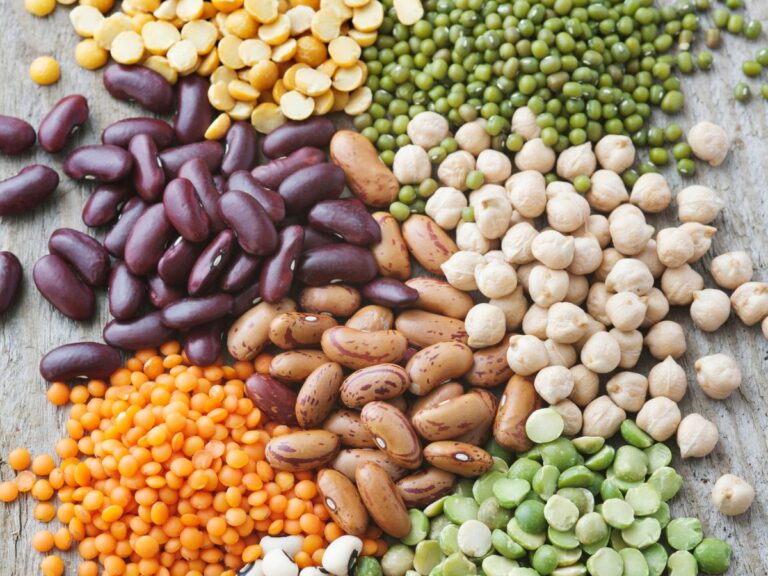
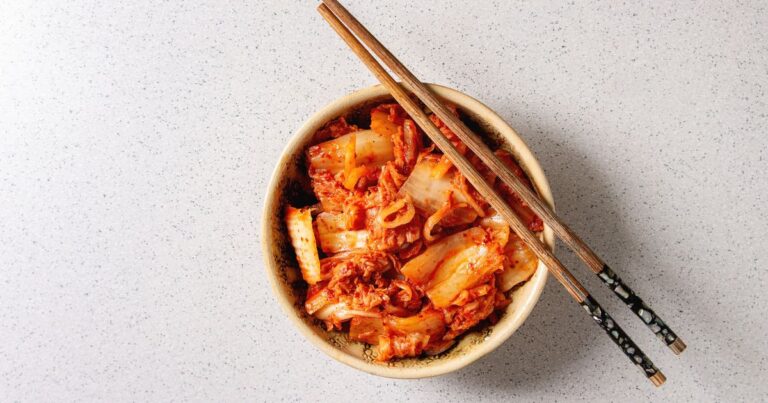

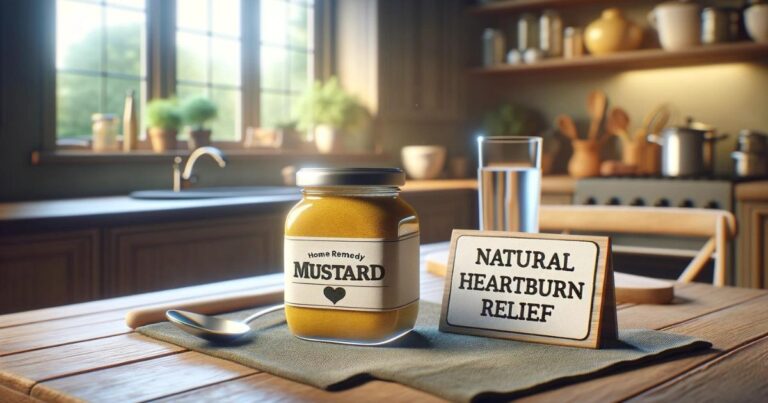

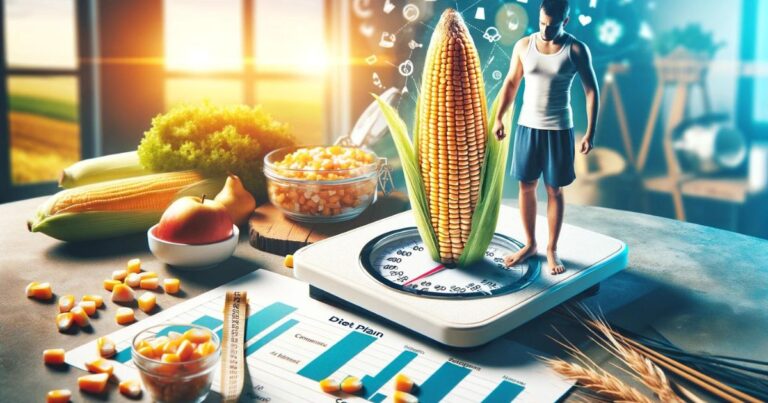
7 Comments